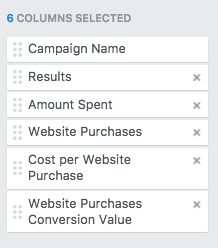— May 13, 2019
Getting rejected for a small business loan is practically a rite of passage for entrepreneurs. Rejection rates can be as high as 73 percent with traditional banks. The odds improve a bit with alternative lenders, who generally approve around 57 percent of small business loan applications, but the rejection rates can be disheartening.
Ready for some good news? Lenders reject loan applications for the same often-avoidable issues over and over. When applying for a loan, it helps to think like a lender. Consider five common reasons small business loan applications are frequently denied, and take steps to avoid these common pitfalls.
- Not Enough Time in Business
Traditionally, banks require you to be in business for at least two years, though an exception may be made for a (highly competitive) SBA loan, part of which is guaranteed by the government via the Small Business Administration.
While there’s not much you can do to speed up the clock and get more business history under your belt, you can look beyond traditional banks. Alternative lenders tend to have a less stringent requirement for time in business; one year is generally sufficient — even less in some cases.
It’s also worth noting that accuracy is important when reporting time in business on your loan application. Experience in a similar industry does not equate to time in business, and should not be treated as such when applying for a loan. What lenders want to know is how long the business that’s borrowing money has been in existence or incorporated.
While including past history may be a seemingly innocent error, this type of misrepresentation can easily cause your application to be rejected.
- Asking for Too Much, or Too Little
We know what you’re thinking: Can asking for too little capital really hurt your chances of securing funding? In a word, yes — depending on whom you’re asking for the loan. Traditional banks commonly issue larger loans, on which they earn more interest.
Banks may be less likely to approve smaller loans that are under around $ 250,000. Why? It’s all about the numbers. It takes banks the same amount of time, effort and resources to service a seven-figure loan as it does a five-figure loan, on which they make much less money.
Alternative lenders, on the other hand, commonly lend smaller amounts than commercial banks and the application process is generally much faster and easier. However, it’s crucial that you prove you can pay back the amount you’re asking for on your application.
Asking for too much, without showing the lender exactly how you plan to repay the loan, will get your application rejected. If your current cash flow isn’t strong enough to comfortably cover the loan payments for the amount you’re requesting, you’ll need to detail future projections to show exactly how you’ll get there.
Increase your chances of getting approved for a small business loan by adjusting the amount you ask for, based on who you’re applying with, and be prepared to prove that you can cover the amount you request.
- Poor Credit
Both your personal and business credit can affect your chances of getting approved for a loan, along with your interest rate should you get approved. Lenders often view the credit scores of majority stakeholders as a reflection of the company’s ability to repay the loan. The newer your business (and shorter your history), the more closely your personal credit will be considered — especially if you have not yet established business credit.
If you’re applying for a loan from a commercial bank, or an SBA loan, your business credit will also be taken into account. Always check both your personal and business credit reports before you apply for a loan, and fix any potential errors that may be dragging your score down. If either credit score is low (below 600 for personal credit), it’s a good idea to take steps to improve it before applying for a loan.
If you’re worried about your credit for any reason, consider applying for a loan from an alternative lender. These lenders are generally more lenient when it comes to credit scores, and pay closer attention to cash flow as an indicator of your creditworthiness.
If you have poor credit, you may also want to consider invoice financing, or borrowing against your unpaid invoices. With invoice financing, your payee’s credit is weighed more heavily than your own.
- Weak Cash Flow
When it comes to qualifying for a small business loan, cash flow is king. Lenders want to see that your business has enough positive cash flow to cover your operating costs — plus loan payments. Traditional lenders will consider at least one to two years of your cash flow history, while alternative lenders may look at as little as three months of your bank transactions.
Lenders also look at your ability to maintain a positive bank balance, and ideally a balance that’s increasing steadily. If more money is going out than coming in, or the margin is too tight, your small business loan application may not be approved.
Need help improving your cash flow? In some businesses, getting paid faster is key. No matter what industry you’re in, a little planning and analysis can go a long way. Utilizing technology-driven processes and tools can also help you visualize, plan and manage your cash flow — and even detail future projections that prove to lenders you can repay the loan amount you’re requesting.
- Lack of Planning
When you apply for a small business loan, it’s important to make a strong case for your business that removes any doubts a lender may have about your ability to repay the loan. Always define how you plan to use the capital to grow your business, and include a convincing business plan that explains exactly how you will repay the loan. You won’t give lenders much confidence without laying out a plan for the funds you’re asking for.
Being conscious of these common reasons small business loan applications are denied, and taking steps to avoid them will help improve your chances of getting approved.
This article was originally published on the author’s business financing blog and was reprinted with permission.
Business & Finance Articles on Business 2 Community
(75)







